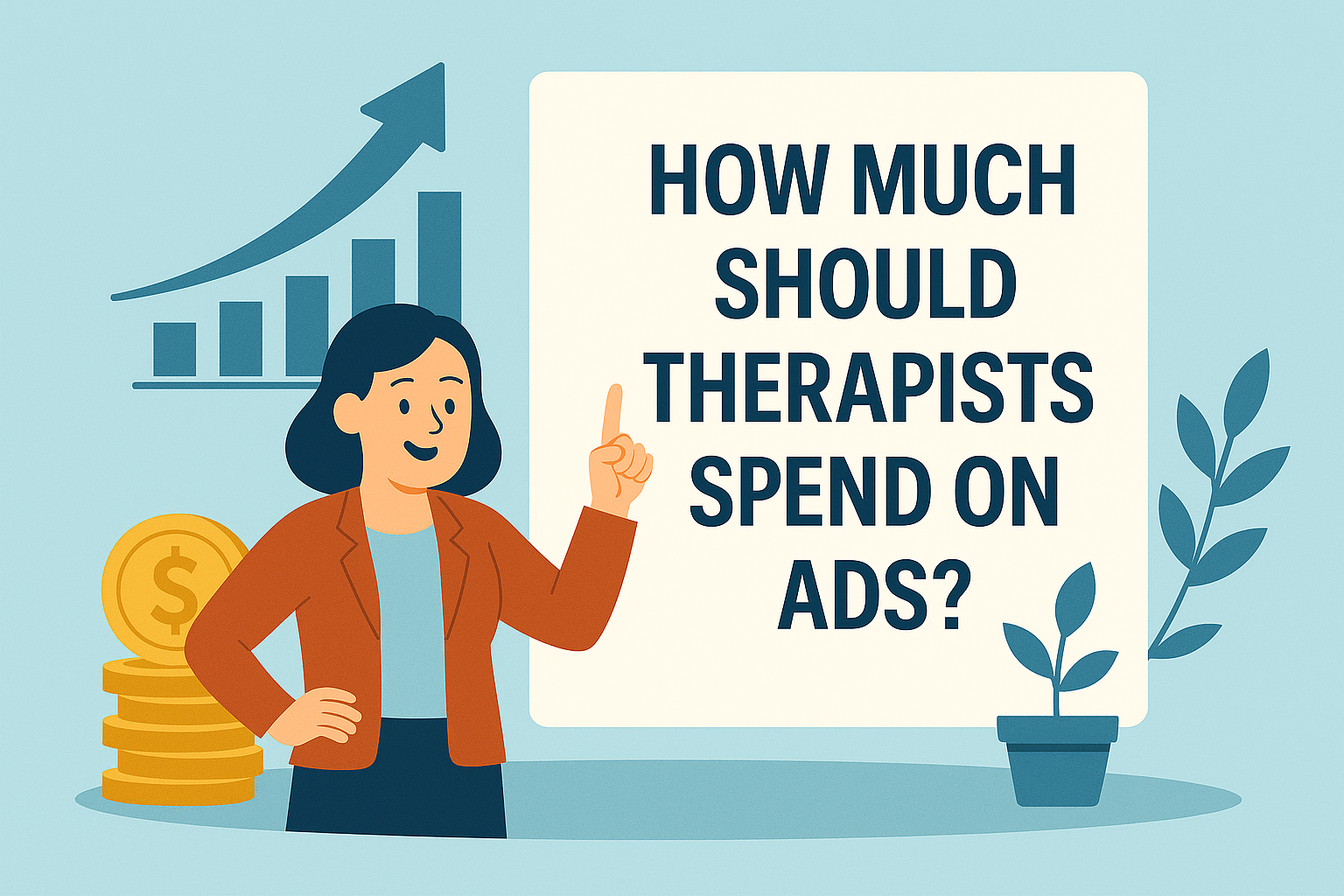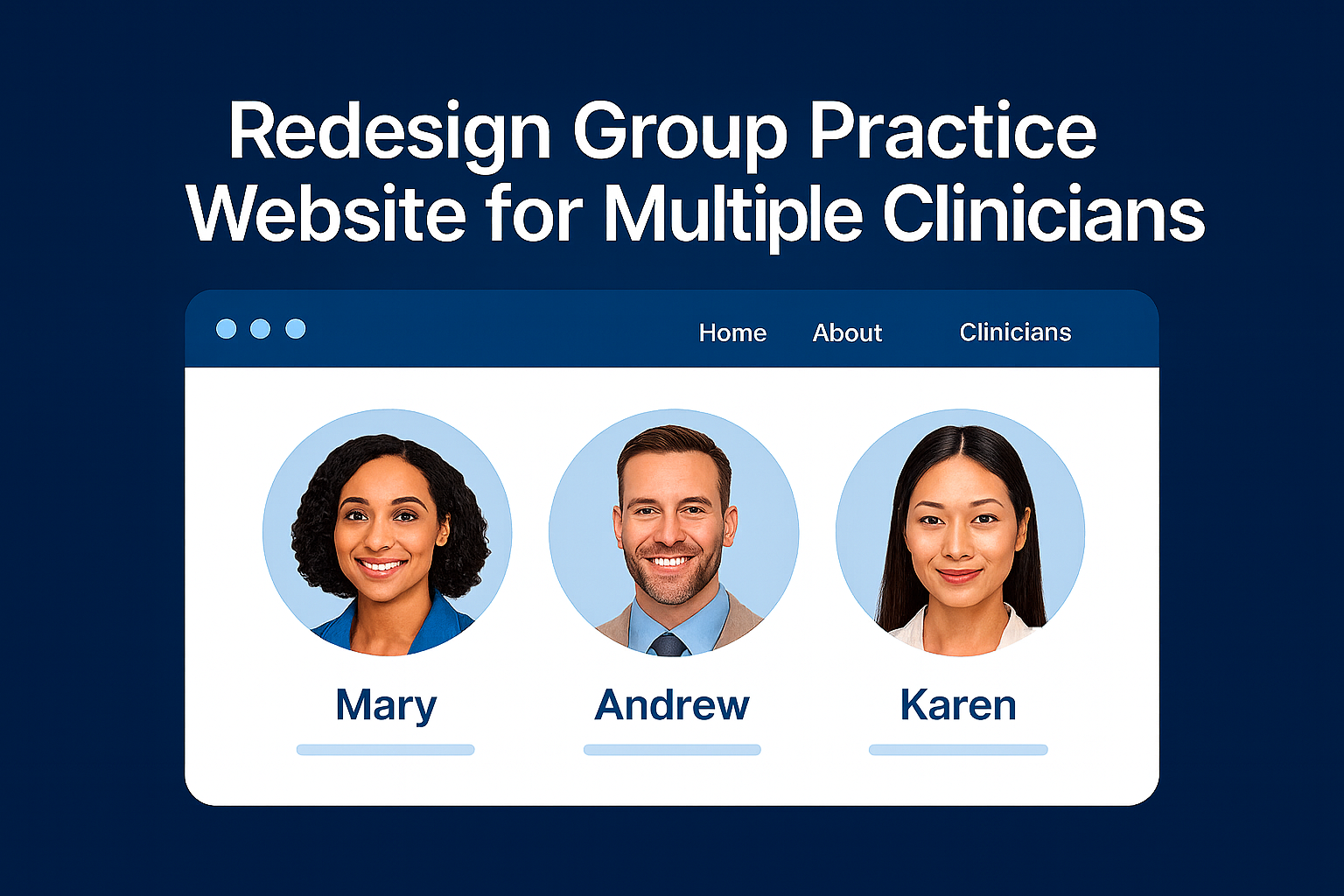How much should therapists spend on ads is a question every private practice eventually faces. With rising competition, higher CPC rates for mental-health keywords, and stricter ad approval guidelines across Google and Meta, therapists often feel uncertain about the “right” investment. Many wonder whether their budget is too low, whether ads will actually convert, or whether paid traffic even makes sense for their practice size.
The truth is, your ideal ad budget depends on your niche, target cities, client demand, and the overall strength of your website and digital presence. If your site isn’t built to convert, even a well-structured ad campaign will underperform. A modern, fast, and professionally designed website significantly improves the ROI of every advertising dollar you spend.
This is where partnering with a mental-health–focused team becomes essential. Mental Health IT Solutions helps therapists align ad spend, website performance, landing pages, keywords, and tracking into a single, high-performing growth system that creates predictable inquiries month after month.
This article breaks down the exact budgets therapists should consider and shows how to calculate the most profitable investment for your practice using industry-tested benchmarks.
1. Understanding How Ad Costs Work for Therapists
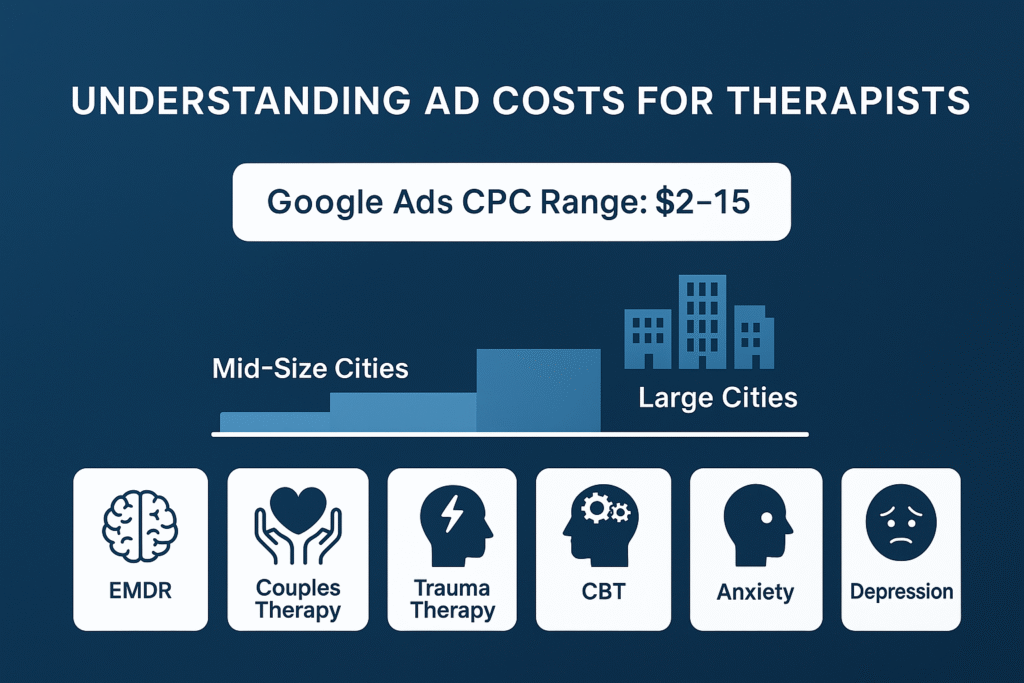
Average CPC in the Mental Health Industry
Google Ads CPCs for therapy-related keywords typically range from $2–$15 per click, depending on:
- Location (high-cost in LA, NYC, SF; lower in mid-size cities)
- Specialization: EMDR, couples therapy, trauma therapy tend to be higher
- Search intent and urgency
- Competition and density of therapists
If your website isn’t designed to convert, your ad budget will underperform. Review Therapist Website Development to ensure your site supports your ads.
What Influences Your Ad Budget
- Population size
- Level of competition
- Number of services offered
- How fast you want client flow
- Insurance vs private pay
- Quality of SEO (review: SEO for Therapist)
2. Recommended Monthly Ad Budget for Therapists
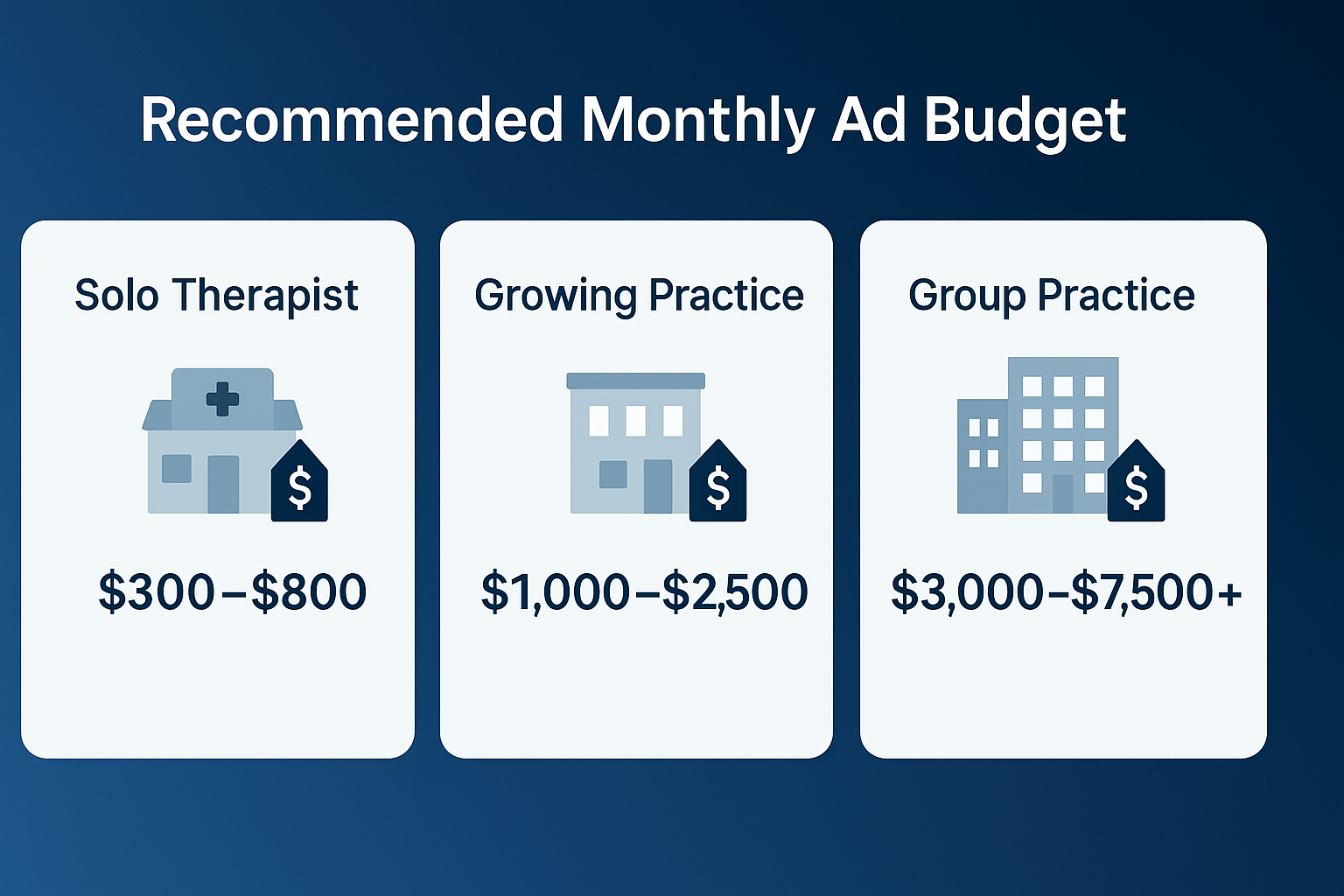
Solo Therapists / New Practice
$300–$800/month
Goal: generate consistent weekly inquiries.
Growing Private Practices
$1,000–$2,500/month
Goal: increase volume, fill multiple clinicians.
Group Practices / Multi-Location Clinics
$3,000–$7,500+/month
Goal: fill several clinicians, expand cities.
Minimum Effective Budget
Below $300–$400/month, ads rarely produce consistent results.
For a broader context on client acquisition, see How Can I Get More Clients for My Therapy Practice?
3. How to Calculate Your Ideal Ad Spend
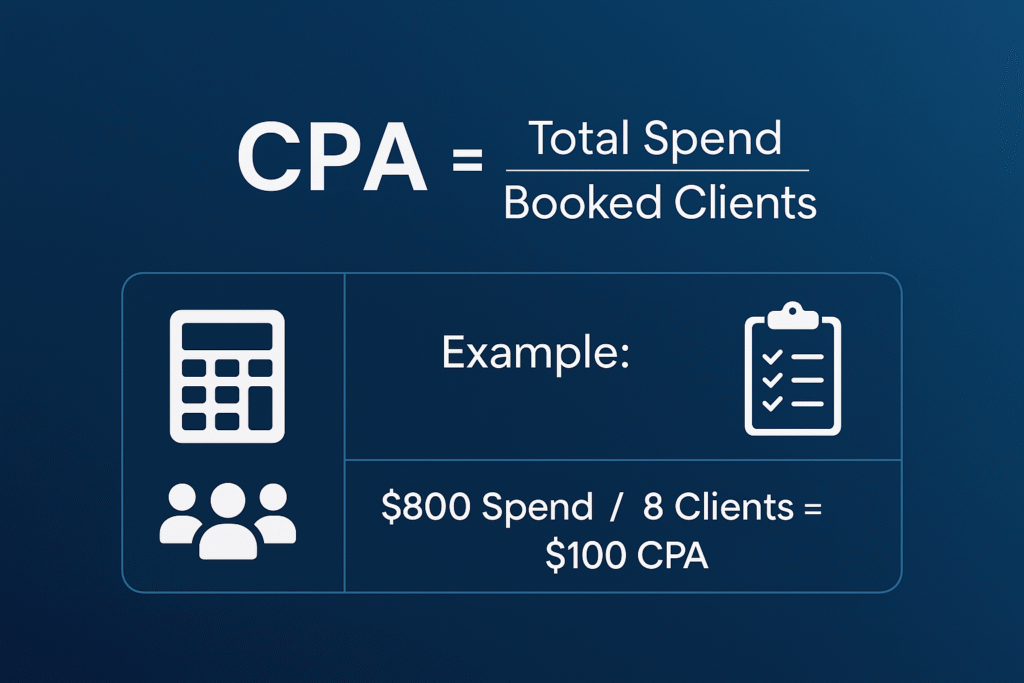
CPA Formula: Total Ad Spend / Number of Booked Clients
Industry average CPA: $40–$120 per booked client.
Steps
- Identify how many new clients you want monthly.
- Multiply by the estimated CPA.
- Add 30–60 days of testing buffer.
- Review SEO contribution to reduce dependence on ads (see: Local SEO for Therapists)
Example Scenarios
- Solo therapist seeking 8 new clients → ~$400–$800 avg monthly spend
- Group practice seeking 30+ new clients → $3,000–$6,000 monthly
- Launch phase budgets vs scaling budgets differ
4. Google Ads vs Meta Ads: Budget Differences
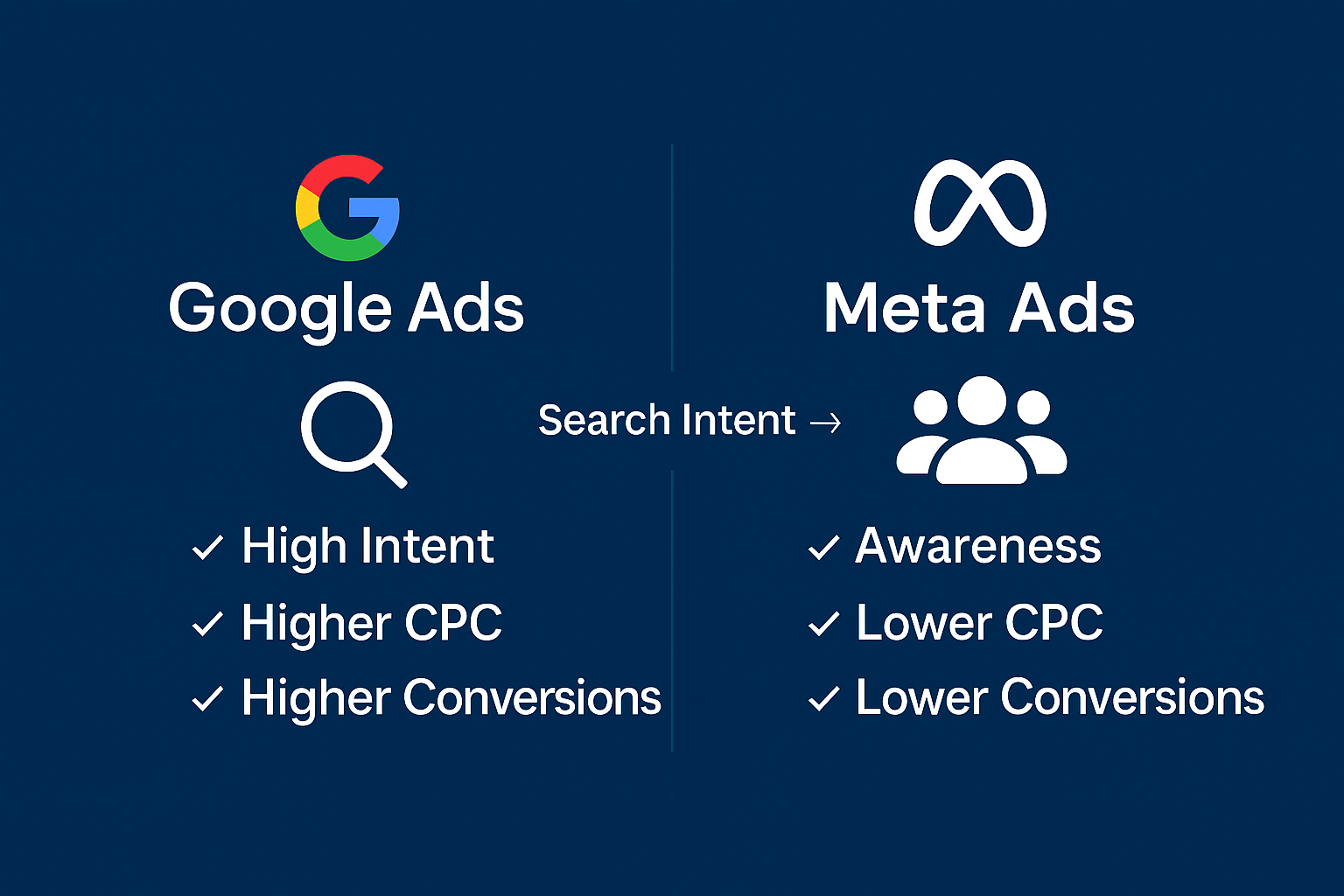
Google Ads (High Intent Searches)
- Higher CPC
- Higher conversion
- Ideal for EMDR, CBT, Trauma, Couples, Anxiety, Depression
- Requires a higher monthly budget
Meta Ads (Awareness + Engagement)
- Lower CPC
- Lower direct conversion
- Useful for workshops, groups, and brand-building
When to Use Both Together
- New clinician onboarding
- Slow seasons
- Market expansion
5. What Results You Should Expect from Different Budgets
$300–$600 Budget
- 5–12 inquiries/month
- Good for testing
$1,000–$2,000 Budget
- 15–40 inquiries/month
- Best for solo therapists + growing practices
$3,000+ Budget
- 50–100+ inquiries/month
- Ideal for group practices
6. Common Mistakes Therapists Make with Ads
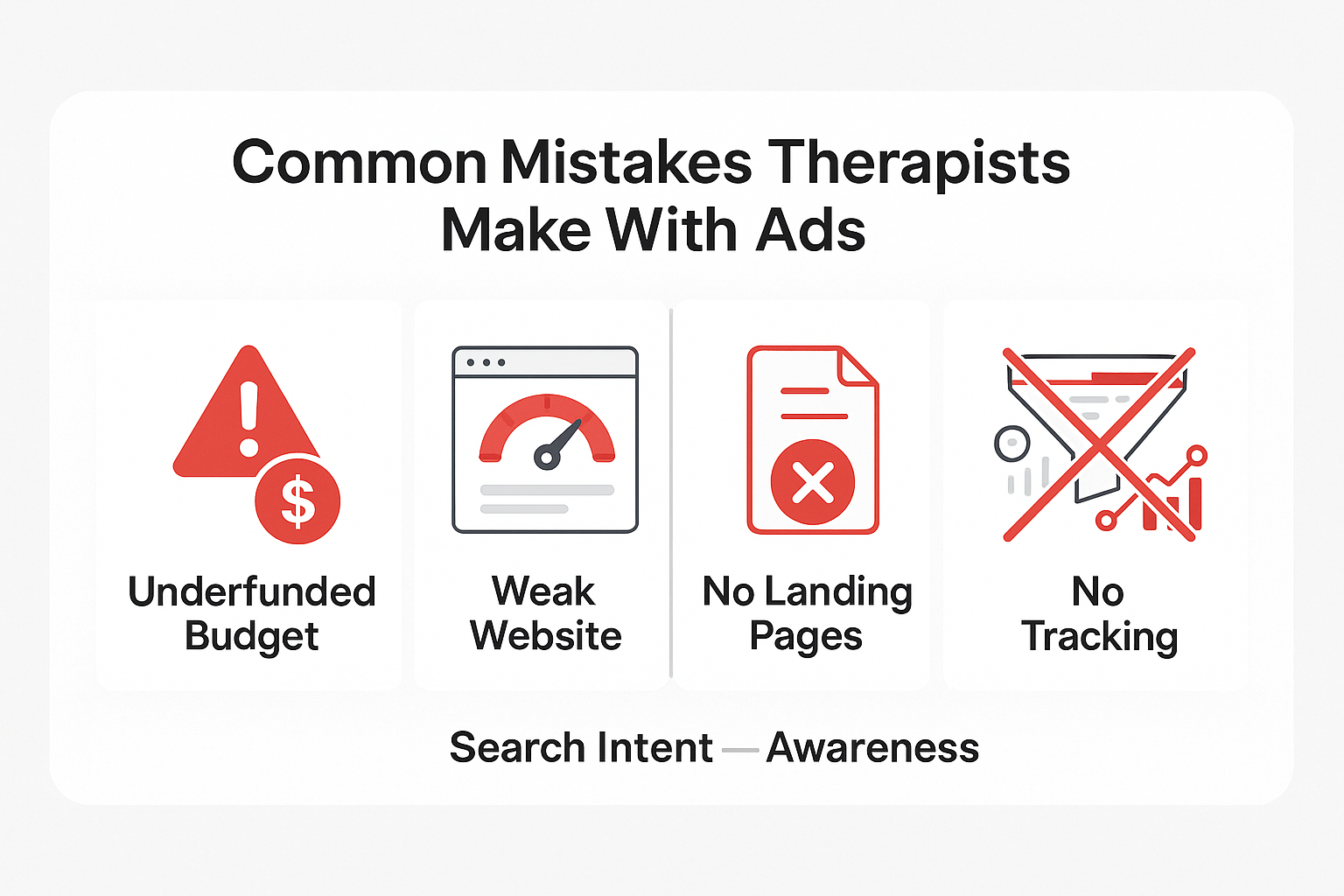
Underfunding Campaigns
Budgets below $100–$200/month fail almost every time.
No Conversion Tracking
- No call tracking
- No form tracking
- Missing Google Analytics events
Driving Ads to Weak Websites
Weak websites kill ad ROI. Fix fundamentals using: Therapist Website Development Guide
Not Creating Landing Pages
Service-specific landing pages convert 2–4x higher.
7. How MHIS Manages Ad Budgets for Maximum ROI
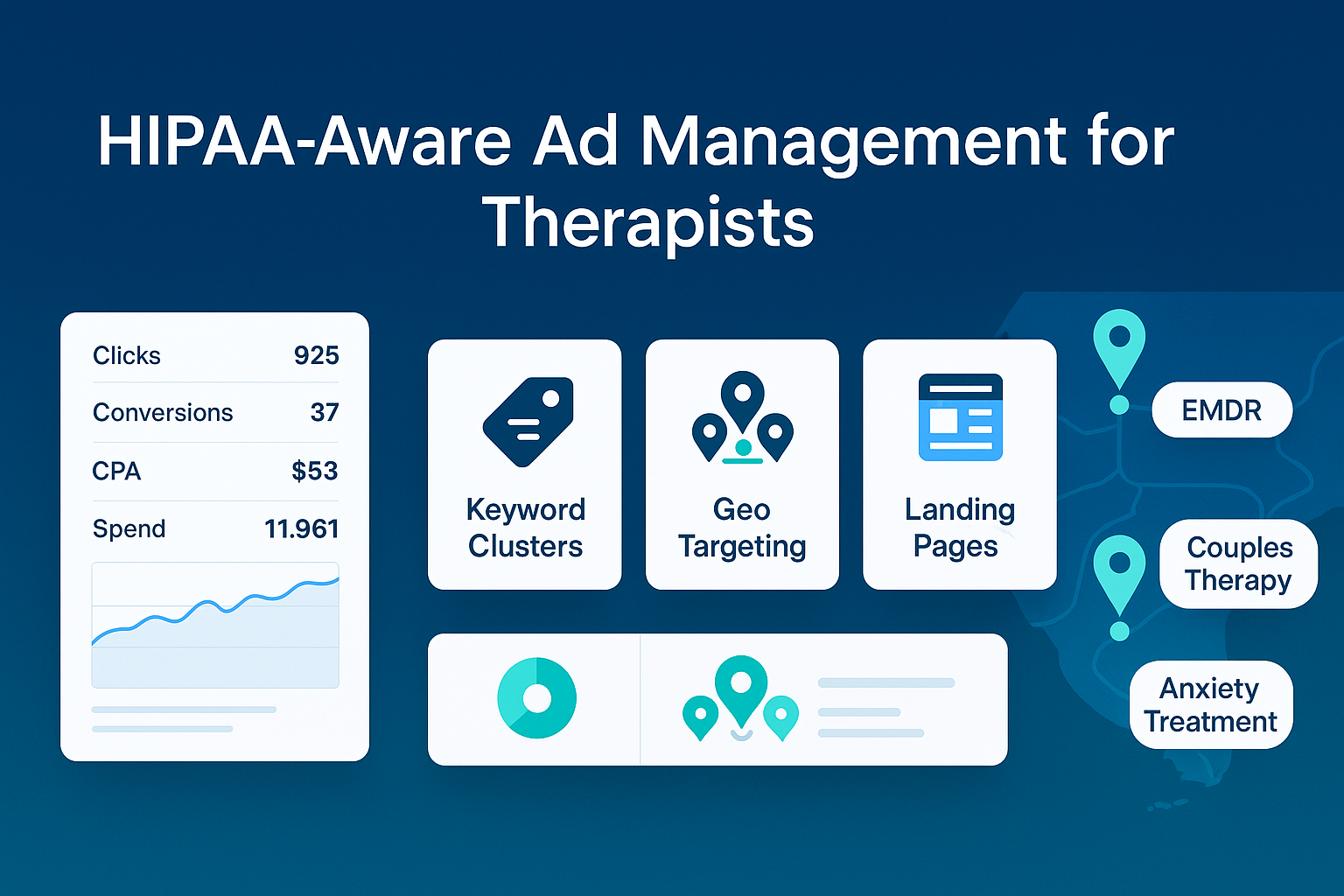
HIPAA-Aware, Therapist-Specific Strategy
- Therapy niche keyword clusters
- Geo-targeted campaigns
- Optimized landing pages
- Real-time conversion tracking
ROI Benchmarks & Reporting
- Weekly reports
- CPC, CPA, keyword insights
- Call and form tracking
Why Therapists Prefer MHIS
- Reduced wasted spend
- Therapy-specific ad templates
- Avoiding disapproved ads
- Deep understanding of SEO + landing pages
8. How to Decide Your Own Budget: A Simple Checklist
- How fast do you want clients?
- How many new clients do you need monthly?
- Are you private pay or insurance-based?
- Is your website conversion-optimized?
- Are you in a competitive metro area?
- Do you have strong SEO already? (review: SEO for Therapists)
FAQs
Is Google Ads worth it for therapists?
Yes. Google Ads works well because people searching “therapist near me” or “EMDR therapist” have immediate intent. A well-structured campaign with proper tracking typically results in strong ROI, especially when paired with a high-converting website and strong SEO.
What is the minimum budget I can start with?
You can begin with $300–$400/month, which is considered the minimum viable spend. Anything below that restricts visibility and data collection. For competitive cities and niches, higher budgets produce faster and more reliable results.
How long before ads start working?
Most campaigns begin generating inquiries within the first 1–2 weeks, but the testing and optimization phase usually takes 30–60 days to reach stable cost-per-inquiry and accurate targeting. Larger budgets accelerate optimization.
Should I invest in Google Ads or Facebook Ads?
Google Ads delivers higher intent and faster client bookings. Meta Ads (Facebook/Instagram) support awareness, workshops, and long-term nurturing. Most practices benefit from starting with Google Ads, then adding Meta ads for scaling.
What’s the average cost per client for therapy ads?
The therapy industry average CPA ranges from $40–$120, depending on city, competition, landing page quality, and niche. High-value specialties (EMDR, trauma, couples therapy) may cost more due to higher competition.
Do paid ads work better than SEO?
Paid ads deliver faster results, while SEO drives long-term, sustainable growth. For strong overall client flow, combining both is ideal. Review long-term SEO strategies here: SEO for Therapists.
Should I hire an agency or run ads myself?
Therapy ads require HIPAA awareness, keyword understanding, and proper tracking setup. Many self-run campaigns waste money due to incorrect targeting. Agencies specializing in mental health eliminate wasted spend and improve ROI.
Conclusion
Your advertising budget should match your goals, capacity, local competition, and the strength of your existing website and SEO. Paid ads become profitable when structured strategically, monitored consistently, and optimized for conversions, not when tested randomly with inadequate budgets.
If you want an accurate, personalized ad budget recommendation for your practice, MHIS can prepare a tailored plan based on your city, niche, and growth goals.
Work with Mental Health IT Solutions to maximize your ad ROI.

